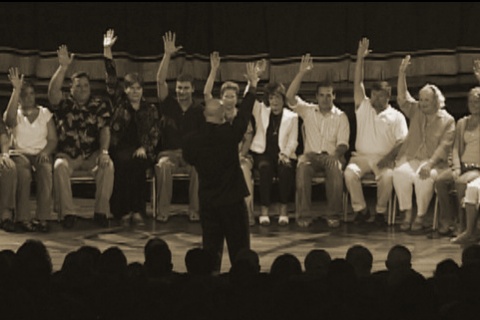You can always be found, no matter how hard you try; you've no reason to not take pictures of interesting things; you can keep working on that spreadsheet when stuck in the tube; you can't even avoid calls from your work (unless you're one of Gordon Brown's aides who allegedly deleted their mobile numbers from his mobile before going on the summer holidays). In short, the mobile phone has affected the life and tethered itself to more people than ever before, and that's a bad thing.
Now this is slightly tongue in cheek, but there is a huge dependency in many of us to have our smartphone with us no matter what. I'm no different, and thinking back, I've carried some form of smartphone or PDA with me over the last ten years. I kid myself that I've got perfectly good reasons to carry a computer with me at all times, and that I need to stay plugged into the internet cloud and have gigabytes of information at my finger-tips but mostly it's paranoia.
And two way paranoia at that, with the worry not that people will not be able to reach me with their incredibly vital news and thoughts that needs to be handled as soon as possible, but that I'll be unable to get in touch if I have a burning desire to talk about the weather. Half the time isn't the reason for going out somewhere precisely because you want to get away from people, especially in an office environment?
Nokia have always made a strong point that the mobile phone is something you always have with you – you grab your house keys, your wallet and your phone as you go out of the door. The phone is now something intrinsically associated with a single person, and the growth of the smartphone has meant that what was once science fiction – that everyone would carry a personal computer with them that could do everything – is now reality.

But what's important is remembering that these phones are nothing more than tools – yes they keep us connected, they mean we are never truly alone, but I wonder just how much we lose as humans when we have this addiction to mobility? In the last year or so, I've taken to writing more physical letters and small presents in the post – the reaction from those that receive them seems to be far stronger than it used to be. The physicality that real life offers (and is forgotten in our electronic world) seems to have been magnified as we immerse ourselves in the online culture.
(Lets ignore the fact that I use Amazon and Ebay to find the little cute gifts, okay?).
Harking back to those sci-fi plots where we all had computers, they were all connected and anyone could find and talk to anyone in the world, there was always something hidden and evil in the networks, be it a political human interference, or a malevolent computer program that connected the computers and took over the world. If we've achieved the first step of ubiquity, can the silicon overlords be close behind? As for the other side of the evil computers fictional coin, I'd point out the recent publicity around the Nokia Siemens networking equipment providing the Iranian government an avenue to conduct surveillance on their population.
With so many people waiting eagerly for the next phone, queuing up and doing their best to get the latest hardware from a manufacturer, update their firmware to ensure they have the highest version number possible, are we forgetting what a smartphone should be used for? It's a tool, no more, no less. It's not some deity that we have to offer up a sacrifice every 12 months and keep feeding all our personal information for the latest online service.
In the next few years, phones will be able to run our lives, with prediction, navigation, recommendations and communications. What will this do to our humanity? How can we ensure that we don't become a nation, or a world, fixated on the tiny screens we carry around that tell us what to do, when to do it, and who we'll be doing it with...
-- Ewan Spence, July 2009.
